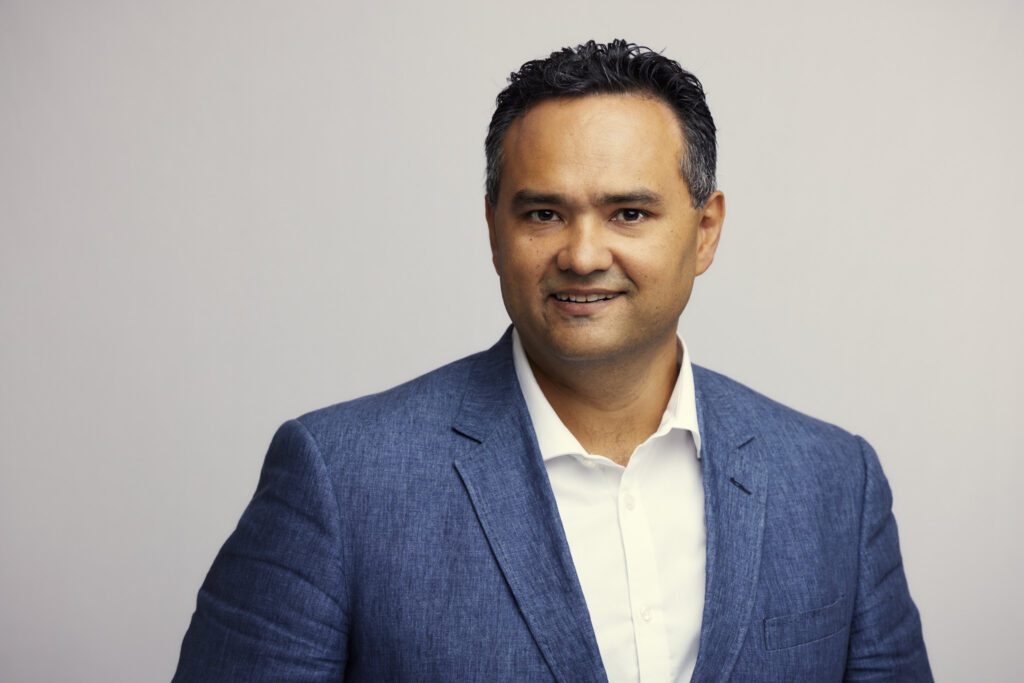
Investing in property can be rewarding, offering the potential for stable rental income and capital appreciation. However, entering the world of property investment requires careful planning and strategic decision-making. This guide will explore essential strategies and practical steps to help you succeed with your first investment property.
You’ll discover who you need to speak to, what you’d need to do, plus some insider knowledge on unique techniques – straight from a professional mortgage broker.
Let’s get into it…
1. Explore Bank Options and Guidance from Trusted Mortgage Brokers
The first step in securing an investment property is understanding your financing options. Banks and mortgage brokers are pivotal resources. Banks offer a variety of loan products, but their terms and conditions can vary widely.
Mortgage brokers, on the other hand, can guide you through these options to find the best fit for your financial situation. They work with multiple lenders and are often able to negotiate better rates or more favourable terms and can offer a strategic approach to purchasing an investment property.
A lender is not really going to give any guidance other than what financial product from their suite of products suits your needs. They are restricted in their offerings so going direct to a lender means you need to shop around to see which lender suits your needs when buying an investment property.
It’s essential to compare offers and understand the details of each loan option. Factors such as interest rates, loan terms, and additional fees should be carefully considered. A good mortgage broker will help you navigate these complexities and choose a loan that aligns with your investment goals.
-
Who: Potential property investors and mortgage brokers.
-
What: Investigate various financing options different banks provide and get advice from mortgage brokers.
-
Where: Consultations can take place in bank offices, broker offices, or through online platforms offering financial services.
-
How: Schedule meetings with multiple banks to understand their mortgage products or if you have time constraints, consult with independent mortgage brokers who can compare the best loans available based on your financial situation.
Unique Technique: Utilise mortgage brokers who offer ‘portfolio reviews’. These brokers find competitive rates and strategise how your mortgage fits into your broader investment portfolio. They can identify ways to leverage existing assets to finance additional properties without overextending financially.
2. Discover Home Loan Solutions Tailored to Your Life Stage
Your stage in life significantly influences the type of loan solution that’s best for you. For example, younger investors might seek loans with lower initial payments, while those closer to retirement might prefer loans that can be paid off more quickly.
Discuss your long-term financial goals with your lender or broker to find a loan that matches your life stage and future plans.
Different loan features such as fixed-rate, variable-rate, or interest only loan, or principal and interest payments can also impact your decision. Each has pros and cons, depending on your cash flow needs and risk tolerance.
-
Who: Homebuyers and financial advisors.
-
What: Finding home loan products that match the buyer’s current life phase, whether first-time homebuyers, upgrading, or investing for retirement.
-
Where: This discovery process can occur through online loan comparison tools, bank consultations, or meetings with financial advisors.
-
How: Engage with financial advisors to analyse personal financial conditions and future goals to recommend the most suitable mortgage products.
Unique Technique: Look for lenders who provide dynamic loan features that can change as your life or personal circumstances may change without refinancing. These can include options to switch from interest-only to principal and interest payments or take payment holidays.
Insight: Certain lenders offer ‘lifetime’ loan products that accommodate multiple property purchases under one loan umbrella. This can simplify property management fees and property expenses and reduce costs across a growing investment home loan portfolio.
To invest wisely, you need a solid understanding of property investment basics. This includes knowledge of market trends, rental yields, occupancy rates, and potential growth areas. Educate yourself about the economic factors that affect property prices, such as interest rates, employment rates, and government policies.
Investment seminars, real estate courses, and property investment books are valuable resources for building your knowledge base. Staying informed will help you make data-driven decisions and identify lucrative property investment strategies and opportunities.
-
Who: New investors, real estate educators, and real estate market analysts.
-
What: Learning about key investment metrics like market trends, ROI, capital appreciation, and rental yields.
-
Where: Workshops, real estate courses, seminars, or self-study through books and online resources.
-
How: Enrol in real estate investment courses or attend seminars hosted by experienced investors to gain foundational knowledge.
Unique Technique: Advanced real estate investors use data analytics tools to predict property price trends in micro-markets rather than general metropolitan areas. This involves analysing data points like new infrastructure projects, local government investment, and demographic shifts at a neighbourhood level.
Insight: Some sophisticated investors participate in syndication investment loans or crowdfunded real estate investments to gain access to commercial real estate values, property investments or larger projects that were previously out of reach.
4. Define Your Financial Objectives
Clearly defining your financial objectives is crucial when owning property well. Are you seeking long-term capital growth, or is generating a stable rental income more critical? Your goals will dictate your investment strategy and influence decisions about the type of property you buy and its location.
Set specific, measurable, achievable, relevant, and time-bound (SMART) goals. For instance, you aim to achieve an inevitable return on investment (ROI) within five years or to generate a specific amount of passive income annually.
-
Who: Property investors and their financial planners.
-
What: Setting clear, quantifiable financial goals for property investment.
-
Where: Planning sessions can occur in a financial planner’s office or during personal strategy meetings.
-
How: Work with a financial planner to outline specific financial goals, such as achieving a certain ROI, securing a passive income, or reaching a net worth target through property investments.
Unique Technique: Use the ‘reverse engineering’ method to define objectives. Start by determining the end financial goal and work backward to determine the necessary steps and resources needed to achieve that goal, including the type of capital growth strategy of investment property journey and number of investment properties required.
Insight: Implementing SMART goals specific to each property within the portfolio, rather than the portfolio or property manager, can provide more apparent performance indicators and actionable targets.
5. Exploring Strategies for Property Investment
Property managers or real estate agents should consider several investment strategies, such as buy-and-hold, fix-and-flip, or purchasing vacation rentals. Each strategy has different levels of risk and potential return.
Buy-and-hold involves purchasing property to rent out for an extended period, benefiting from rental income and potential appreciation. Fix-and-flip focuses on buying properties at a low price, renovating them, and selling them at a higher price. Vacation rentals require investing in tourist areas and managing short-term leases.
Choose a strategy that fits your risk tolerance, investment timeframe, and management preference.
-
Who: Investors exploring options like residential, commercial, or vacation rental properties.
-
What: Choosing between investment strategies such as buy-and-hold, fix-and-flip, or vacation rentals.
-
Where: Strategy planning can be advised by investment advisors, through real estate investment clubs, or self-researched online.
-
How: Assess personal risk tolerance, management capacity, and financial resources to choose a suitable investment strategy.
Unique Technique: Some investors focus on ‘niche’ market segments within the real estate market, such as eco-friendly properties or homes with potential for zoning changes or land tax less, or property costs which can significantly increase property value with the proper modifications.
Insight: Incorporating tech-driven property management solutions can enhance the appeal of rental properties and streamline operations as property increases, thus increasing overall investment returns.

6. Budgeting and Cash Flow Calculation for Property Investors
Effective budgeting and cash flow management are essential for investment property success. Start by calculating all potential expenses, including mortgage payments, property taxes, insurance, legal fees, and maintenance costs. Then, estimate the annual rental income that the property is likely to generate.
Use these figures to assess the property or investment loan’s net cash flow—the amount left after all expenses. Positive cash flow is crucial; your investment loan can sustain itself and potentially fund future acquisitions.
-
Who: Investors and financial analysts.
-
What: Creating a detailed budget and cash flow forecast for potential property investments.
-
Where: This often occurs using financial software or during consultations with financial analysts.
-
How: Use software tools to project income and expenses related to investment property management, including mortgage payments, taxes, maintenance costs, and potential rental income.
Unique Technique: Employ the ‘50% rule’, which estimates that a property’s operating expenses will be about 50% of its gross income, excluding the mortgage payment and total rental income. This can quickly assess a property’s cash flow potential before a detailed analysis.
Insight: Successful investors often use more conservative estimates for expected rental income, and rental yield and higher forecasts for expenses to ensure they are not caught off-guard by unexpected costs or vacancy rates.
Insight from a Professional Mortgage Broker
Buying an investment property requires a different due diligence process to buying an owner occupier. There are multiple strategies to look at and factors to consider such as your age, income and what your medium to long term objectives are, a lender is not really looking at any of these when offering you capital. Their main objective is to assist you with the loan and make sure you can afford the repayments so I always recommend that you speak with a mortgage broker. Mansour Soltani from Soren Financial.

7. Choosing the Ideal Loan for Property Investment
The right loan can make a significant difference in your investment’s profitability. Consider different lending options and structures. For example, interest-only loans might reduce your monthly outgoings, improving cash flow during the early years of your investment. However, you won’t reduce the principal amount, which could affect the long-term capital gains tax due.
Consult with financial advisors and mortgage brokers to understand the tax implications of each loan type. Ensure the loan you choose aligns with your investment strategy and financial goals.
-
Who: Investors, mortgage brokers, and lending institutions.
-
What: Selecting a mortgage product that optimises financial returns and matches investment strategies.
-
Where: Discussions can happen in broker offices, banks, or through online financial services.
-
How: With the help of a mortgage broker, analyse different loan features, such as interest rates, repayment terms, and flexibility offered, to find the best loan for the investment.
Unique Technique: Explore credit union loan products. These institutions often offer more personalised service and competitive rates than traditional banks. Credit unions sometimes also have more flexibility in negotiating loan terms.
Insight: Hybrid loans that combine fixed and variable rate components can be an optimal choice in fluctuating interest rate environments, providing stability and flexibility.
8. How to Choose the Right Property
Choosing the right property involves more than just price and appearance. Location is paramount for real estate agent; properties in high-demand areas (good schools, amenities, and transport) usually provide better rental returns and appreciation prospects. Also, consider the property’s condition and potential for improvement or development, which can enhance market value.
Research the local rental property search market thoroughly. Understand the types of properties that are most in demand and the typical rental clientele (families, young professionals, students).
-
Who: Investors, real estate agents, and market analysts.
-
What: Identifying properties that meet investment criteria based on location, property type, and growth potential.
-
Where: Property scouting can occur in desired locations, through real estate listings or by attending open houses.
-
How: Work with real estate agents to find properties in high-demand areas, evaluate property conditions, and assess local market data to ensure sound investment potential.
Unique Technique: Geographic Information System (GIS) technology can analyse the physical, economic, and demographic characteristics of a potential investment location, providing property investor with a more comprehensive view than traditional property scouting.
Insight: Investing in properties near planned transit expansions can be highly profitable, as these areas typically see tax benefits and increased rental demand and property values as the project nears completion.
9. Conducting Thorough Due Diligence
Before finalising your investment, conduct thorough due diligence on the first rental property. This includes verifying property titles, checking for liens, understanding zoning laws, and ensuring no future developments could negatively impact the existing property itself’s value or rental potential.
Also, have the property professionally inspected to identify any structural issues or necessary repairs. This can prevent costly surprises and ensure you’re making a sound investment.
-
Who: Investors, legal advisors, and property inspectors.
-
What: Verifying all aspects of a property before finalising an investment.
-
Where: This process involves visiting the property site, reviewing documents in government offices, or consulting with legal advisors.
-
How: Arrange for property inspections, check for legal clearances, and review zoning laws and future development plans to mitigate potential risks associated with the property.
Unique Technique: Digital due diligence tools can streamline the investigation process, using online databases and algorithms to check property titles, legal compliance, tax deductions, and even predict future legal issues based on current laws and regulations.
Insight: Engaging in pre-purchase audits of the property’s operational systems (like HVAC, electrical, and plumbing) using specialists can prevent high post-purchase maintenance costs, which are often overlooked in traditional property inspections.
Want help from a professional property manager?
Investing in your first property can be daunting, but it can also be gratifying with the proper knowledge and strategies. Take the time to thoroughly research first-time property investors, plan strategically, and seek professional advice. Doing so will increase your chances of achieving a successful and profitable investment property.
In the dynamic world of property investment, having a trusted advisor by your side can make all the difference. Booking a session with a knowledgeable mortgage broker is your next step towards streamlining and enhancing your investment journey.
With their expert guidance, you can navigate the complexities of property financing with confidence and gain access to tailor-made strategies that align perfectly with your financial objectives. Don’t miss out on the opportunity to leverage professional insights and advanced tools that could propel your investments forward.
Contact a mortgage broker today and equip yourself with all the information you need to make
Investment Property FAQs
It is essential to select a broker who understands investment properties and can guide you on the best loan options for your financial situation. Look for brokers who provide portfolio reviews and can strategise how your mortgage fits into your broader investment portfolio.
Your life stage significantly influences the type of loan solution that is best for you. For instance, younger investors prefer loans with lower initial payments, while those closer to retirement may opt for loans you can pay off swiftly. Discuss your long-term financial goals with your lender or broker to find a loan that aligns with your current life stage and plans.
To gain a solid understanding of property investment, consider enrolling in real estate investment courses, attending seminars hosted by experienced investors, or reading property investment books. These resources will help you understand market trends, rental yields, and other crucial investment metrics.
Clearly define your financial goals by setting specific, measurable, achievable, relevant, and time-bound (SMART) goals. For instance, you aim to achieve an inevitable return on investment (ROI) within five years or generate a specific passive income annually. Consult a financial planner to help outline these objectives.
Consider different investment strategies such as buy-and-hold, fix-and-flip, or purchasing vacation rentals. Each strategy has varying levels of risk and potential return. Assess your risk tolerance, investment timeframe, and management preference to choose a suitable plan.
Calculate all potential expenses and estimate the annual rental income. Assess the net cash flow—the amount left after all expenses. Positive cash flow is crucial for sustaining your investment and funding future acquisitions. Use financial software or consult analysts to create detailed budgets and cash flow forecasts.
Analyse different loan features with the help of a mortgage broker to find a loan that optimises financial returns and matches your investment strategy. Consider interest-only loans for better cash flow during the early years, and ensure the loan you choose aligns with your financial goals.
Look beyond price and appearance. Focus on location, the condition of the property, and its potential for improvement or development. Research the local rental market to understand which types of properties are most in demand and assess properties in high-demand areas for better rental returns and appreciation prospects.
Conduct thorough due diligence by verifying property titles, checking for liens, understanding zoning laws, and having the property professionally inspected. This process ensures you make a sound investment and prevents costly post-purchase surprises.
Engage with a knowledgeable mortgage broker or a professional property manager who can provide expert guidance and access to tailor-made strategies that align perfectly with your financial objectives. They can help you navigate the complexities of property financing and investment strategies confidently.
